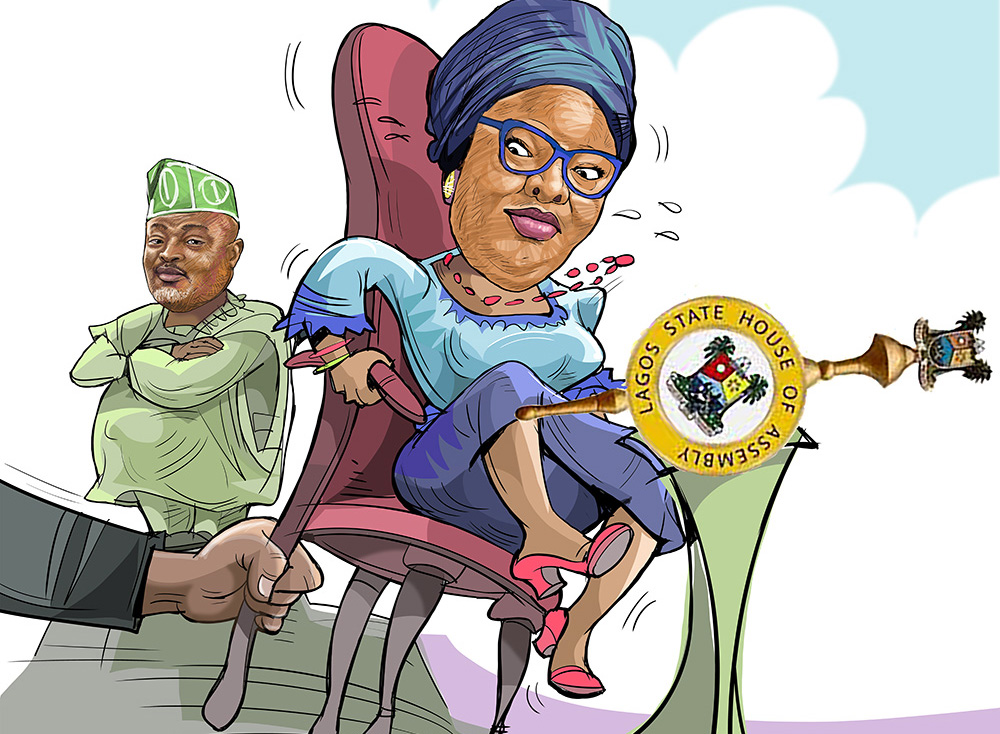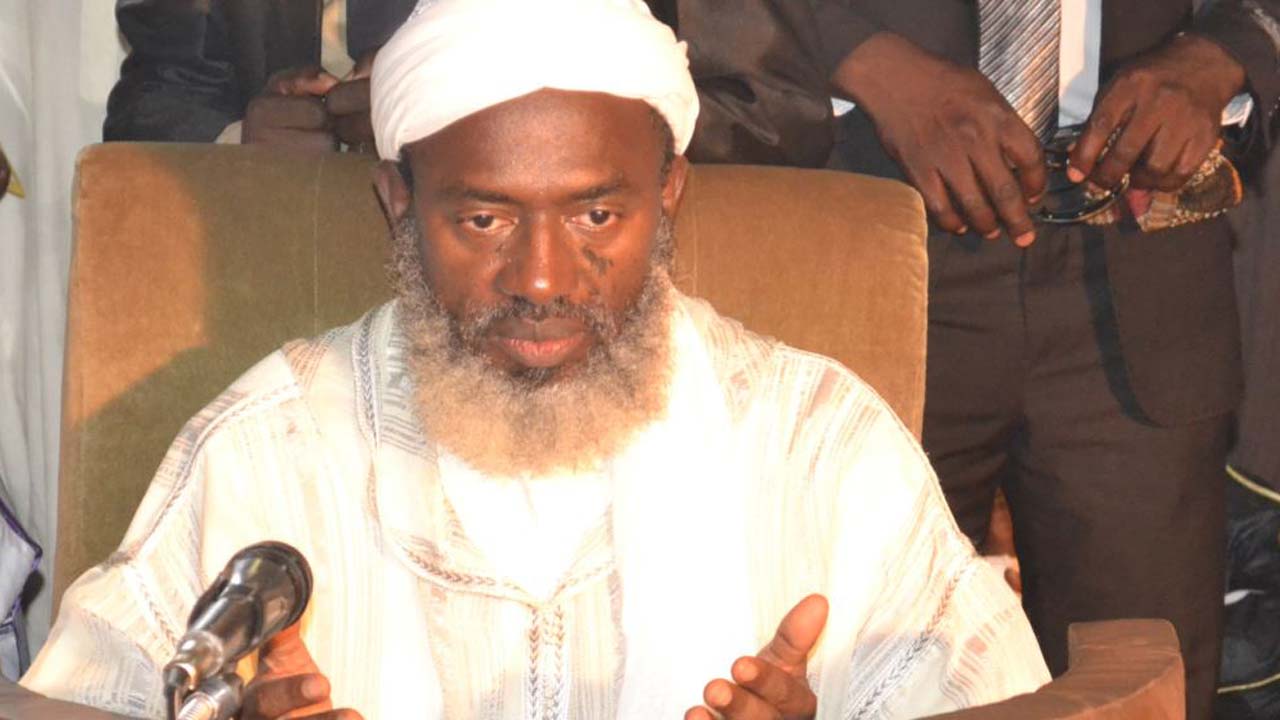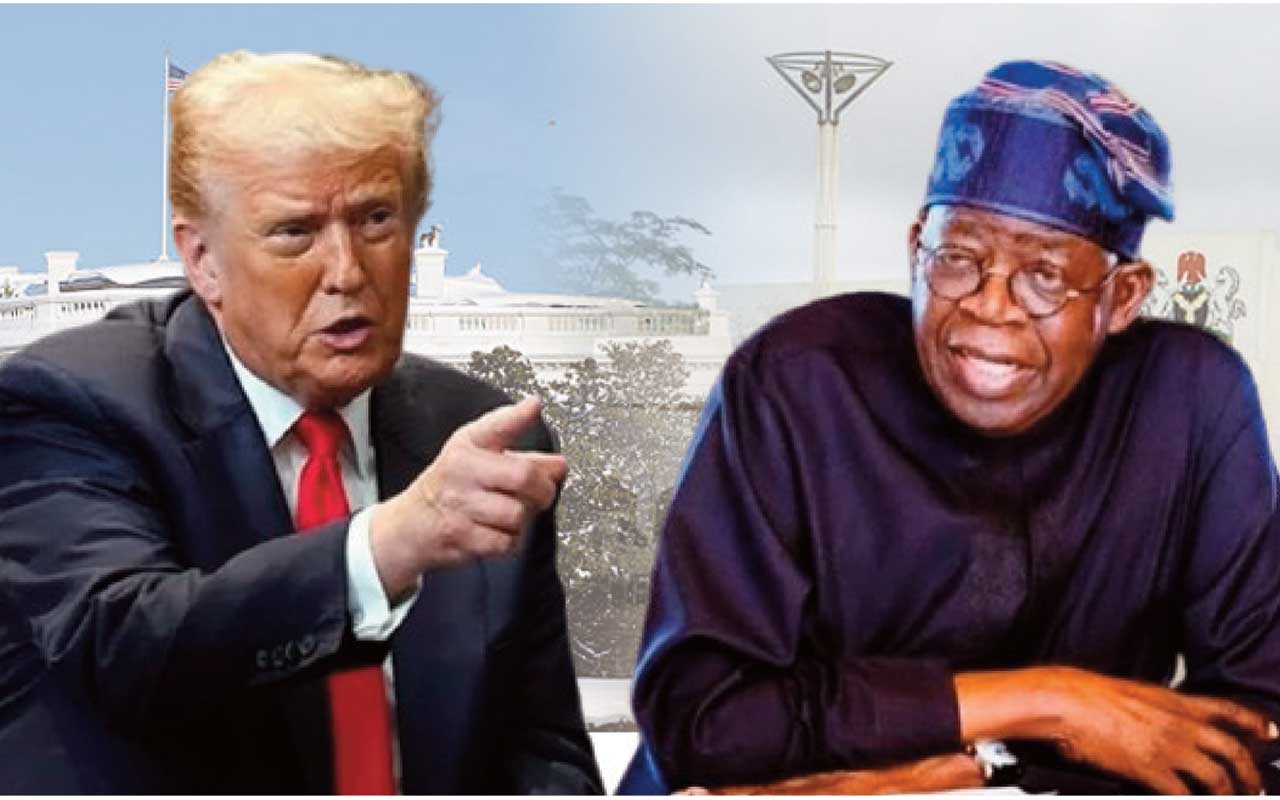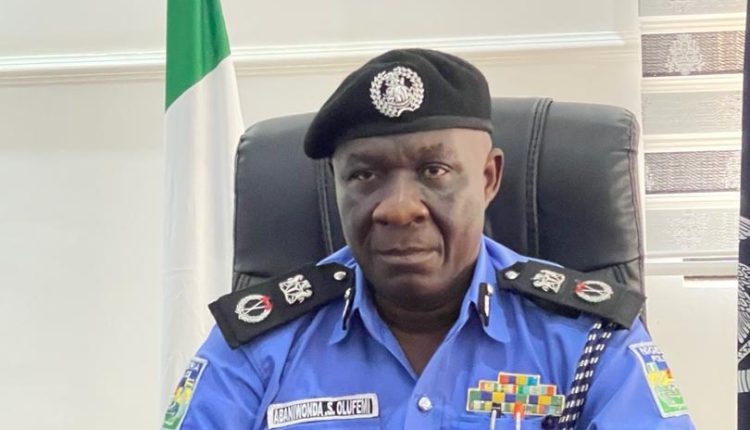
• DSS storms complex amid alleged moves to eject Speaker Meranda
• Controversial letter shows House requested ‘fortification’ from secret police
• GAC member distances body from crisis, faults interference
• Atiku condemns invasion, tells Tinubu to stop interfering in state’s affairs
• APC chieftain warns of potential constitutional crisis in legislature
• HURIWA cautions security agencies, urges respect for separation of powers
The bitter leadership tussle at the Lagos House of Assembly boiled over yesterday, demystifying long-held notions that the ruling All Progressives Congress-led government in the state is glued together by a sturdy and coherent political mechanism.
Tension erupted at the Assembly as officers of the Department of State Services (DSS) stormed the complex, taking strategic positions and disrupting legislative activities, including a scheduled plenary session.
The invasion, allegedly aimed at reinstating ousted Speaker Mudashiru Obasa, left lawmakers, staff, and visitors in shock and triggered widespread condemnation.
President Bola Ahmed Tunubu is the national leader of the APC and the political godfather in Lagos State. The development may have taken many observers by surprise as Lagos is little known for brazen dramas that expose its putrid political underbelly.
Reports had quickly emerged that the DSS officers were at the Assembly to enforce the return of Obasa by pressuring the sitting Speaker, Mojisola Meranda, to resign. This was 35 days after Obasa was removed as Speaker, and the House had continued to function albeit amid the fallout from the removal.
Videos from the Assembly showed commotion within the complex, with legislative staff and others involved in altercations and physical confrontations with individuals suspected to be DSS officers inside the assembly chambers and throughout the complex.
In the videos, voices could be heard insisting that they would not be intimidated by the DSS presence or its efforts to facilitate Obasa’s return. Some claimed that the DSS officers’ invasion was instigated by Obasa himself. The videos, which pushed this narrative, led to widespread condemnation of the DSS for what appeared to be an unlawful invasion of the Assembly.
However, hours later, a letter with reference number LSHA/FAD/0/7554/323 began circulating on social media deepening the intrigue surrounding the unfolding crisis. The letter, signed by the acting Clerk of the Assembly, Mr. A. T. B. Ottun, and written to the Director of the State Security Service, requested additional security within and around the complex.
Dated February 14, 2025, the letter stated that credible information had been received indicating plans to forcefully reinstate the removed speaker on February 18, 2025. The Assembly management stressed that the development posed “a potential security threat” to both the Assembly and its members.
Titled “Urgent: Enhanced Security Measures For LSHA Premises,” the letter stated: “I wish to bring to your attention a pressing matter that requires immediate action.”
The letter claimed Obasa planned to resume office on February 18, 2025 (today). “In light of this situation, we kindly request that you take necessary measures to fortify the security of the Assembly premises, starting from Sunday, February 16, 2025, by increasing the presence of your personnel and implementing strict access control within and outside the Assembly premises until further notice. We look forward to your prompt attention, Sir. Thank you.”
Once the commotion caused by the presence of DSS officers in the Assembly subsided, the lawmakers convened their plenary session. They labelled the incident an “embarrassment to democracy, Lagos State, and Nigeria.” This included the sealing of the Speaker’s and Deputy Speaker’s offices, as well as the legislative chamber, upon their arrival.
During the session, Meranda was visibly emotional and wept after a vote of confidence was passed by the lawmakers. The plenary session was subsequently adjourned indefinitely.
In response to the DSS’s actions, lawmakers called on President Bola Ahmed Tinubu to intervene and address the issue, which they considered a national embarrassment. They also urged the National Assembly to take action.
“This is not the first time a Speaker has been removed. The sky did not fall. Tejuosho was removed and accepted her fate. Obasa should also accept his fate,” a parliamentarian said. “Today is a day I will never forget. This is the same House President Bola Ahmed Tinubu worked so hard for.”
Amid the turmoil, it was alleged that lawmaker Olayinka Kazeem was rushed to the hospital for medical attention due to the chaotic atmosphere within the Assembly.
Efforts to obtain a comment from the Assembly regarding the letter inviting the DSS to provide security were unsuccessful. Stephen Ogundipe, the chairman of the House Committee on Information, did not answer several calls made by different reporters. He later responded to a message sent to his phone, promising to get back, but had not done so as of press time.
The Assembly led by Obasa before he was ousted had adjourned its sitting to February 17, 2025 (yesterday). Meanwhile, a member of the Lagos Governor’s Advisory Council (GAC), Bashorun Olorunfunmi, said the recent developments at the Lagos State Assembly are not connected to the GAC. He stressed that the lawmakers, as an independent body, have the constitutional right to choose their leader and can make changes to the leadership as they see fit.
Olorunfunmi criticised individuals he described as “fifth columnists,” claiming they are attempting to destabilise the state by focusing on one individual, which he deemed “unacceptable.” He expressed concerns over the involvement of the DSS at the Assembly complex, questioning the role of the security agents when the lawmakers had made a unanimous decision.
The GAC member also rejected calls for intervention from President Bola Tinubu, arguing that the 1999 Constitution is clear on the matter of Obasa’s removal by his colleagues. He stressed that there was no need for any appeal to higher authorities, as the Assembly’s actions were in line with constitutional provisions.
Fouad Oki, a prominent chieftain of the APC in Lagos, warned that attempts to destabilise the Lagos State Assembly could lead to a constitutional crisis with far-reaching consequences across the country.
In a statement on Sunday, Oki cautioned that the ongoing developments in the Assembly could escalate, referencing similar crises in the Rivers State Assembly and the recent imbroglio in Kano. He questioned whether any reasonable Nigerian or leader would want to add a crisis in Lagos to the already tense political atmosphere in the country.
Oki further stressed that those who believe they can exert unchecked influence in Lagos should reconsider their actions, highlighting the significance of the state in national politics and governance.
Some sources have suggested that the current unrest in the Assembly could not have occurred without the involvement or approval of the presidency. Some pointed out that Obasa, whom they believe lacks the authority to cause such turmoil, may be receiving backing from powerful benefactors.
REACTING, former Vice President Atiku Abubakar condemned the alleged invasion of the Lagos State House of Assembly by the security operatives, describing the incident as a “reprehensible desecration” of democracy.
In a statement shared on his X social media account, Atiku called for a thorough investigation into the incident. “The viral video of armed security operatives invading the Lagos State House of Assembly is utterly reprehensible and stands condemned. It must be subjected to a full and thorough investigation,” Atiku stated. He expressed dismay at reports suggesting that the operatives had a mandate to facilitate a leadership change, calling it a blatant attack on democratic principles.
“It is appalling that it is those who claimed to have fought for democracy that decided to sanction this crass desecration of the state’s foremost legislative body, and by so doing, putting our hard-earned democracy in jeopardy,” he said.
Atiku described the act as “an attack on the sanctity of democracy and a landmark of indignity to the Nigerian electorate, especially the people of Lagos.”
He also noted that leadership disagreements, such as the one reportedly at the centre of the Assembly crisis, are not uncommon in a democratic system and should be resolved through dialogue and due process rather than force.
“The purported invitation of armed security operatives for a conflict resolution in a parliament is an anathema that should be frowned upon and interrogated with all sense of urgency,” Atiku added.
Shifting his thoughts to President Bola Ahmed Tinubu, Atiku urged the presidency to prioritise addressing national challenges instead of interfering in state matters.
“Tinubu should focus on bringing Nigeria out of the mess he plunged the country into rather than interfering in state matters,” he added. Also, the Human Rights Writers Association of Nigeria (HURIWA) expressed shock and dismay over the invasion.
In a statement signed by the group’s National Coordinator, Comrade Emmanuel Onwubiko, HURIWA urged security agencies to exercise caution and decorum, stressing that the actions contravened constitutional principles.
The group stressed that the actions of the DSS and Nigeria Police Force (NPF) amounted to a flagrant violation of the constitutional provisions that safeguard the separation of powers and checks and balances within Nigeria’s democratic framework.
According to HURIWA, the invasion undermines the constitutionally guaranteed autonomy of the legislative arm of government, as outlined in Sections 4, 5, and 6 of the Constitution of the Federal Republic of Nigeria.
HURIWA highlighted that the principle of separation of powers is integral to ensuring a balance of power among the three arms of government – the legislature, the executive, and the judiciary. This principle mandates that each arm exercises its constitutionally assigned duties independently, free from interference or arbitrary excesses by other branches of government.
The statement condemned the actions of the DSS and NPF, describing them as a dangerous display of lawlessness that echoed a similar incident in the past when the DSS unlawfully stormed the National Assembly complex during the tenure of former President Muhammadu Buhari. HURIWA noted that during that period, some members of the National Assembly, including several women legislators, stood firm in defence of the separation of powers.
In response to the recent incident, HURIWA questioned the justification for the invasion of the Lagos State legislature, calling it an unacceptable infringement on democratic processes. The organisation called on President Bola Ahmed Tinubu to intervene and ensure that the heads of the DSS and NPF are held accountable for the unlawful siege on the Lagos State House of Assembly.
The group urged the president to direct the immediate withdrawal of DSS and NPF officers from the assembly premises, particularly if their presence was only intended to obstruct the legislative functions of the elected lawmakers. HURIWA further noted that if any legal disputes exist regarding the leadership of the Lagos Assembly, the matter should be resolved in court without interference from executive bodies such as the DSS or the NPF.
HURIWA also warned that the continued interference by security agencies in the workings of the Lagos State House of Assembly would amount to executive intimidation, undermining the rule of law and potentially threatening the country’s democratic system.
The group called for an immediate cessation of the security siege and urged all parties to respect the legal process. HURIWA added that Nigeria’s democracy must be protected at all costs, and any attempt to stifle the independence of the legislature through extrajudicial means must be vehemently resisted.
For its part, Debo Adeniran, President of the Committee for the Defence of Human Rights (CDHR), expressed dismay over the situation, emphasising that such actions should not occur in a democratic setting, where the rule of law and due process are expected to prevail.
Adeniran called for calm among the warring parties in the Assembly, stressing that the prestige of the House must not be compromised. He advised the DSS not to be used as a political tool in the Assembly’s power struggles, advocating for their involvement only in cases of criminal infractions.
Adeniran stated: “What happened at the Assembly should never be encouraged. State Houses of Assembly are expected to symbolise democracy, demonstrating its practicality in addressing issues.”
He added that if the Speaker had committed an offence, the details should have been forwarded to the DSS, Economic and Financial Crimes Commission (EFCC), or the Independent Corrupt Practices and Other Related Offences Commission (ICPC) for investigation, in line with democratic principles.
He further emphasised that democracy should not involve forceful removals and that due process should be followed, even in the impeachment of a state governor. Adeniran noted that the sudden removal of the Speaker without following the proper channels was undemocratic and set a bad precedent.
He urged the DSS to distance themselves from the political turmoil by publicly disclosing their reasons for being present at the assembly. He warned that the involvement of security agencies in political disputes could undermine the integrity of democratic institutions and erode public trust.






